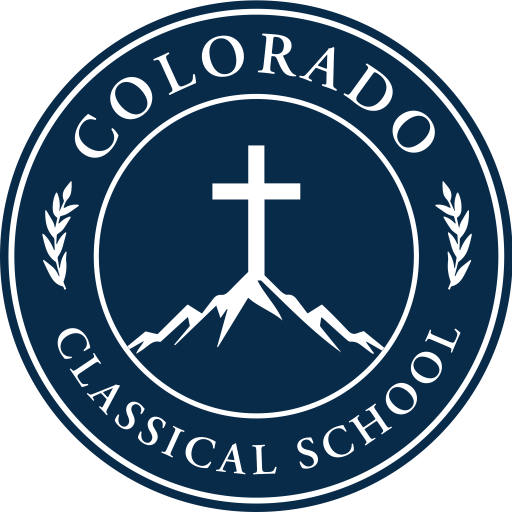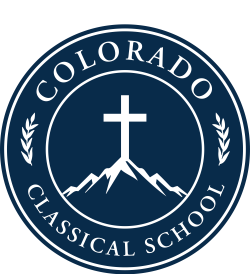Frequently Asked Questions
Why meet four days per week?
There are many benefits to our 4-day/week class schedule. At CCS, we aim to do all things in the spirit of schole, which is Latin for “restful learning.” We want our students to enjoy a robust, vigorous education while also allowing time for parents to actively participate in their child’s education with one at-home day of learning. God instructs parents to train up children in the way they should go. Therefore, parents are vitally important to the mission and vision of any educational institution, and a 4-day school week helps support this. It also allows sibling bonds to be strengthened, extra help for academic struggles, and the prevention of burn-out. We want students to have a slower weekly pace of life, where an extra day can allow for pursuit of extracurricular activities to round out their education, to travel without missing school, and to attend regular appointments without missing class.
The 4-day schedule also gives teachers room to breathe in their schedules to focus on excellent lesson planning as well as attending their continuing education without disruption of the normal class schedule.
Why choose Colorado Classical School over the free classical charter school down the street?
While we are thankful for the continued growth in the classical education movement, and there are many great options around the Denver area, we provide a distinctly Christian classical education that seeks to integrate Christ and a Christian world-view into every subject, every lesson, and every teacher-student interaction. From understanding the Christian roots of the scientific method, to beholding the God-given beauty of a classic work of art, to how we handle conflict and discipline, in all things we seek to exalt Christ as we form our student’s character and virtue in his image. We teach the Law of virtue and holiness, using it as a tutor not only to form our student’s (and our own) character, but also as it was always intended – to drive us to our need of Christ and salvation that is only found in the Gospel.
A fully integrated Christian-classical education will not only have prayer and Bible memorization throughout the day, the memorization of catechisms and a robust Bible curriculum, but all staff and teachers will be committed Christians whose number one priority is to point your student to Christ and the truth of the Gospel.
Another significant difference is that as a private institution that does not take funds from the government, we have freedom to create and enforce our own policies on issues of the day that affect our school, such as cultural beliefs and practices that may go against our Christian world-view.
What are your thoughts for the rest of this sentence?Classical education has historically been inseparable from Christianity, as the very premise on which our educational model is built – that God is the Creator of everyone and everything and that all knowledge proceeds through Him. He is the Logos. Our hearts must be formed through the Word of God to love what he loves and to use our God-given reasoning abilities to think in a way that reflects and glorifies him.
What is the Trivium?
The three stages of classical learning known as the Trivium are Grammar, Logic and Rhetoric. These are based on natural stages of child development.
Grammar: building blocks and foundation for future learning.
Logic: critical thinking, reasoning and the why behind the subjects.
Rhetoric: expressing spoken or written knowledge with poise, clarity and wisdom.
Learn more about Christian Classical education here.
Is tuition assistance available?
Please see information on tuition assistance here: Financial Assistance – Colorado Classical School
Why do students wear uniforms?
Our development of a uniform policy is driven by a desire to create and promote an environment of learning where dress is not a distraction to the educational process based on the following principles:
- We aim to honor God in all we do, acknowledging the Lordship of Jesus Christ in our choices.
- All human actions, including outward manifestations such as clothing, reveal and communicate the disposition of the heart at some level. We desire to address these heart issues in one uniform policy rather than seeking to anticipate and curb the numerous manifestations of it that surface throughout the year with a looser dress code.
- Clothing represents the vocational calling of a person. The neat appearance created by a uniform enhances a ready-to-learn atmosphere.
- Uniforms help engender a cohesive presentation of the students in our school. When our students are in uniform, it communicates, aesthetically, that they are part of the same team, working toward the same goals. The student is part of a group identity that strives for excellence, and the code establishes a tradition toward that end.
- The uniform code should save parents money. The uniform code de-emphasizes the social impact of dress and helps focus the students on character and academic issues.
- The uniform code addresses security. On field trips, students in uniform aid the teachers in keeping track of everyone. On the playground or in the school, teachers and staff can identify students from outsiders.
What are your class sizes?
Typically class sizes are capped at 16 students. On occasion a larger class size may be approved when it benefits the students and the subject, e.g. Choir.
Where can I read more about Christian classical education?
Please review this document adapted by our Head of School, Bridget Dornbirer, from 100 Common Questions – A Guide to Understanding Classical Christian Education by Dr. Timothy Dernlan.
Is classical education weak in math and science?
Why Latin?
ACA’s classical methodology teaches Latin for two reasons.
First, Latin is still very much alive in languages today. More than half of English words come from Latin, and studying Latin gives an excellent foundation not only for an expansive English vocabulary, but also for learning the many Latin-based foreign languages being spoken around the world today.
Second, studying a foreign language gives students the tools of verbal expression in their own language. Students learn English grammar more effectively by rigorously studying Latin; that is, they learn the reasons for, and the uses of, the parts of speech learned in their English classes.
Recitation: What is it and why do we do it?
CCS’s classical methodology features a Recitation event twice a year. Students in each grade present examples of memoria, which are selections of speeches, poems and songs that give them a deep language of expression and also helpful facts that lay the foundation for future learning. For instance, students may present a World History Timeline or recite all the countries of Europe, or the 10 Commandments. Each event lasts approximately 60 minutes, and we invite you to stay for the entire event (as it’s important for our students to have a community of listeners).
Sharing and reciting knowledge is an important skill: It requires different mental faculties from writing or reading, typical ways of evaluating learning in the 21st century. A memorized and recited piece is more easily “accessed” in the student’s mind than, for example, a string of words encountered in a novel. And learning to speak a poem or a jingle—with clarity and expression—is a foundational skill for all public speaking, useful for the student’s entire life.



